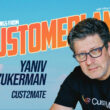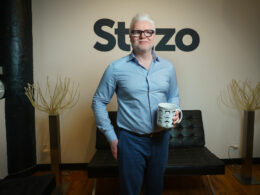Provocateur:
The Harvard Business Review (HBR) article “Be a Data Custodian, Not a Data Owner” calls out something all of us in marketing need to take seriously: “a dangerous mindset of data entitlement.” The term stayed with me. It’s an eloquent way of referring to the all-too-familiar practice of collecting and using information with little regard from those that “lent” it in the first place.
But that’s got to change. Not just because consumers increasingly recognize the value of the data they provide and because legislation is forcing the issue, but because data that is earned — through genuine value exchange — is often far more useful.
Tech giants have incredible levels of access to our online movements and activities, and inferences are made based on our activity. But it’s actually quite difficult to understand our behavior without context. As an example, take a look at the profile Google that has predicted for you: head to the Google account homepage by clicking the widget in the top right corner of any Google site. Click through to “privacy and personalization” and then “manage your data and personalization.” The profile Google has predicted for you is under “ad personalization.”
Does the profile represent you as a person? Does it reflect your true motivations? Your behaviors? You?
We believe that “earned data,” obtained through transparent value exchange, is far more powerful. Brands don’t need to know everything about consumers, nor do consumers want them to know everything. But when there is good reason and genuine value to be gained, consumers do volunteer their information.
It’s the quality of the data that counts, not the volume.
Data has famously been described as the “new oil,” although behavioral science expert Richard Shotton says “salt” is perhaps a more apt analogy. Salt has been highly desirable but in short supply for most of our history — but now that there is such an abundance, it actually threatens our health.
Data then, once a precious marketing commodity, is now in oversupply and we must rethink its use carefully.
“We shouldn’t harness data just because we can; instead, as much time should be spent on choosing which data sets to ignore as which to use,” Shotton says in his book The Choice Factory.
The HBR article recommended celebrating when less data was used, saying “if an engineering or customer service team has not accessed personal data in weeks, yet still managed to get its work done effectively, acknowledge their accomplishment and make it a rallying point for the organization.” This, of course, focuses on the ethical reasons for using as little personal data as possible. I’d also suggest that less — but greater quality — data usage can not only be just as effective, but far more so.

David Eldridge, CEO of 3radical, established his first company at age 14 to market the software he wrote, which won first prize in a BBC National Competition. Roles at Shell and GB Group were followed in 1997 by co-founding Alterian plc, where Eldridge led its IPO in 2000 and its development to become a recognized leader in the marketing platform space. He is a joint founder of 3radical.
Featured in BtoB magazine’s “Who’s who in BtoB” and Data Strategy’s “Power 50 in Data,” David sits on the boards of several high-growth tech companies.
This article originally appeared in DMCNY. Photo by Kristina Flour on Unsplash.













